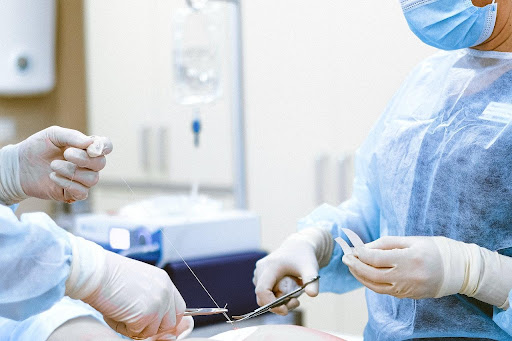Congratulations on making the decision to undergo rhinoplasty surgery! While the procedure may be exciting, it is important to remember that the recovery process is just as crucial as the surgery itself.
Following the advice of your doctor will help ensure that you heal properly and avoid complications. Below, we have outlined six essential care tips for after rhinoplasty surgery.
Follow the doctor’s instructions carefully
Your doctor will provide you with a personalized recovery plan after your rhinoplasty surgery. It is essential that you follow these instructions carefully to ensure a smooth and successful healing process.
Your doctor may advise you to avoid certain foods, medications, and activities, and prescribe you pain relief medication, antibiotics, or anti-inflammatories as needed. Make sure to ask any questions you may have during recovery and follow-up appointments.
Apply cold compresses to reduce inflammation
After rhinoplasty surgery, inflammation and discomfort are inevitable. Applying cold compresses to the surgical area can help reduce swelling and relieve pain.
Ice packs, wrapped in a towel, can be applied to the cheeks and forehead for 15-20 minutes at a time, as required. Just be sure to avoid placing ice directly on the nose, as this can damage the incision site and slow down the healing process.
Use a saline spray and humidifier
During the healing process, it is crucially important to keep your nose hydrated. Your doctor may recommend using a saline spray to moisten the nasal passages and keep them clear of debris.
Additionally, using a humidifier can help keep the air in your room moist and prevent your nose from drying out. This will help promote healing and prevent complications such as crusting and infection.
Avoid strenuous activity
Although you may be eager to resume your usual daily routine, it is important to take it easy after rhinoplasty surgery. For at least two weeks after your procedure, avoid any activities that involve bending or lifting, as this can cause strain on your nasal stitches.
Additionally, avoid any strenuous exercise or activities that can cause sweating. It is recommended to avoid blowing your nose or submerging it in water for at least two weeks after surgery as well. Your doctor will inform you about the best time to initiate physiotherapy post the recovery period.
Wear sunglasses whenever you go outside
After rhinoplasty surgery, your nose needs protection from the sun and impurities. Wearing sunglasses can help protect your eyes from wind and dust and reduce the risk of swelling and infections. Glasses without nose pads are especially useful during the early post-operative period.
Wearing glasses directly on your nose may cause pressure on the nasal bridge, which may affect the healing and recovery process.
Keep your head elevated
During the first few days after rhinoplasty surgery, it is essential to keep your head elevated above your heart level.
Sleeping with your head propped up on two pillows can aid in reducing swelling and bruising. It is important to sleep on your back for this initial period and avoid lying on your side as well. You may need to continue elevating your head for longer if there is any persistent swelling.







